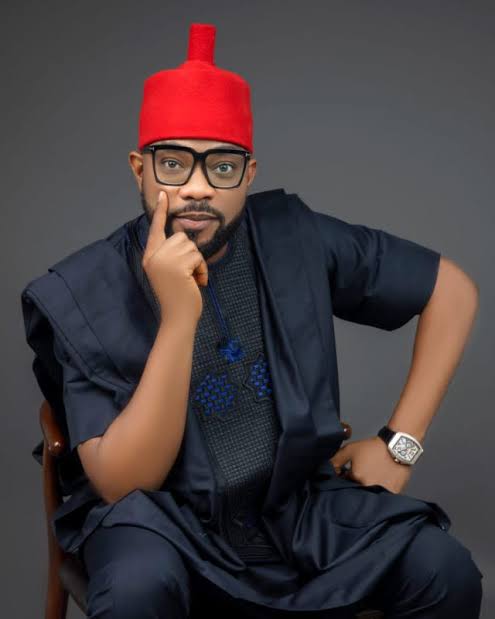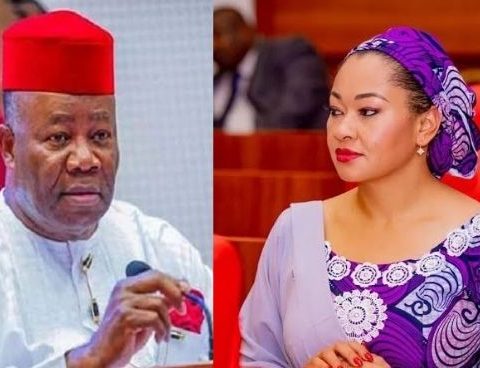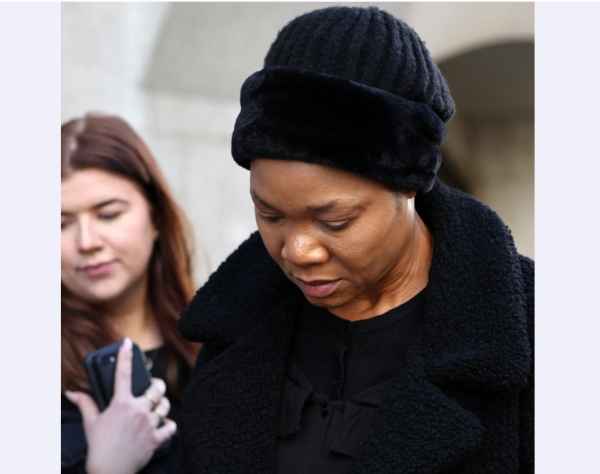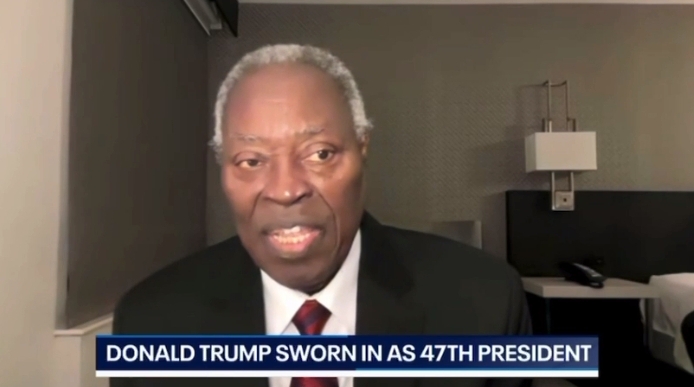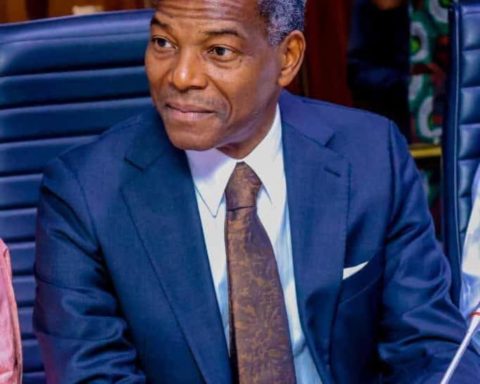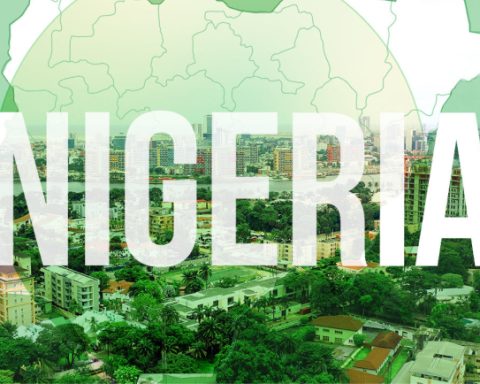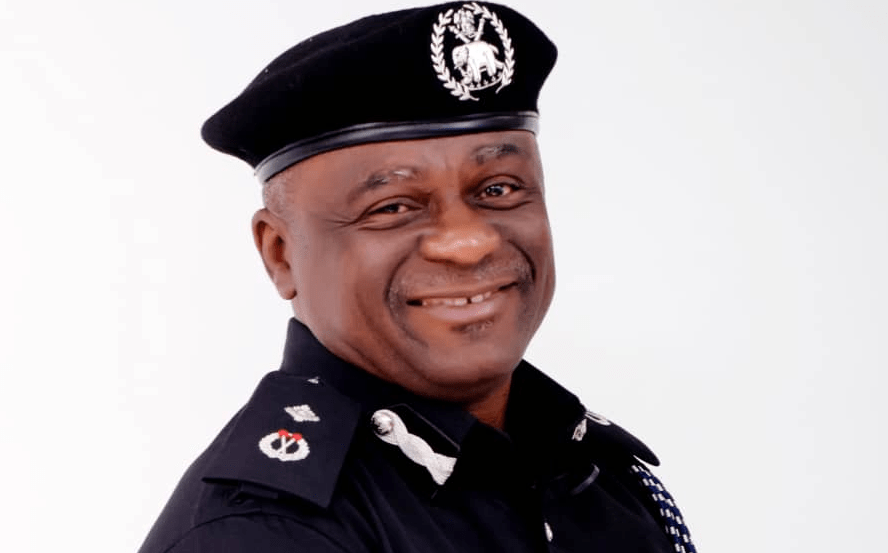An excerpt from www.smarthistory.org summed up the concept of “ikenga” in Igbo cosmology by drawing extensive citations from one of the most distinguished literary works of one of the most respected writers to have ever come out of Nigeria: the late Professor Chinua Achebe.
To put Achebe in the appropriate context as Nigeria’s most recognised Novelist, it will interest any observer to know that one of Professor Chinua Achebe’s works, “Things Fall Apart,” has been translated into several international languages and is used to educate College students in Countries such as Japan, Central Asia, Europe, and America. Little wonder that the best place to gain the most perceptive understanding of the concept of Ikenga in Igbo cosmology is the writings of Professor Chinua Achebe.
Join our WhatsApp ChannelAccording to the citation: “Chinua Achebe’s celebrated novel ‘Arrow of God’ examines the cultural complexities of the Igbo peoples in colonial Nigeria. Set in the early decades of the twentieth century, the book intimately addresses many nuances of Igbo beliefs, customs, and rituals, particularly in the context of British colonial rule, which was rapidly expanding in Nigeria in that era. The fateful interaction between two characters in the novel, Akukalia and Ebo, is one such instance of a close look at a crucial aspect of Igbo belief. Following a serious altercation, Akukalia insults Ebo by breaking Ebo’s ikenga. Devastated by the loss, Ebo promptly grabs his gun and kills Akukalia. Despite Ebo’s grave offense, the village elders cannot punish him, because under no circumstances does anyone in Igbo society have the right to defame, much less destroy, a man’s ikenga. This tragic incident described by Achebe, himself an Igbo, demonstrates the crucial role of ikenga in Igbo cosmology.
READ ALSO: Between Creation Of More States And Regional Govt, Which Do We Really Need?
An Igbo man’s right hand is the hand of accomplishment because it is the primary agent of action, confronting and overcoming life’s challenges. Carved out of wood and anywhere from a few inches to about two feet tall, an ikenga symbolizes its owner’s right hand. When an Igbo male comes of age, he may ritually be offered an ikenga, which becomes not only his proud possession to be preserved and honored for the rest of his life, but is also an integral part of his identity as a unique individual. Signifying the owner’s potential for success and his control of his own fate, the object embodies his chi, his ndichie (ancestors), and ike (power).
In short, the man’s ikenga becomes the essence of his individuality. Yet at the same time, it also serves as an unequivocal marker of his commitment to his society. Though much less frequently than men, women may also possess ikenga, the researcher concluded.
In this reflection, we are addressing the qualitative attributes of a contemporary legislator who is a renowned activist who also goes by the name IKENGA Imo UgoChinyere.
In Nigeria’s dynamic political landscape, few figures have emerged as powerfully and authentically as Hon. Ikenga Imo Ugochinyere. Representing the Ideato North/South Federal Constituency in the House of Representatives, Ugochinyere’s rise in less than two years has redefined the essence of servant-leadership in contemporary Nigerian politics. His achievements highlight the power of dedication, intellect, and fearless activism in transforming governance narratives.
In a political environment often plagued by mediocrity and stagnation, Hon. Ikenga Imo Ugochinyere stands as a beacon of hope and progress. His rapid ascent from a seasoned civil society advocate to a distinguished member of Nigeria’s House of Representatives is nothing short of remarkable. With a blend of charisma, intellect, and an unwavering commitment to public service, Ugochinyere has, in under two years, accomplished what many seasoned politicians could only dream of achieving in decades.
Ugochinyere’s journey into the corridors of power is not a product of chance but a testament to his resilience and dedication. Before venturing into politics, he had already cemented his reputation as a relentless advocate for justice, human rights, and good governance. As President of the National Youth Council of Nigeria (NYCN), Secretary General of the African Youths Council (AYC), and founder of the Action Peoples Party (APP), Ugochinyere consistently demonstrated a knack for leadership and a passion for societal transformation. These roles prepared him for the rigors of legislative duties, equipping him with the tools to excel in Nigeria’s Green Chamber.
His foray into the House of Representatives has been characterized by an impressive string of achievements that underscore his legislative prowess. Ugochinyere’s debates and contributions have resonated beyond the confines of the chamber, shaping national discourse and setting a standard for others to emulate. His logical affirmations and articulate presentations during debates have positioned him as a rising political juggernaut, earning him respect from both allies and adversaries. His commitment to fostering political pluralism and defending the sanctity of democracy is evident in his relentless advocacy for a multiparty system and his efforts to ensure that democracy in Nigeria does not devolve into a one-party affair.
Since his inauguration, Ugochinyere has distinguished himself as a legislative titan. Appointed Chairman of the House Committee on Petroleum Resources (Downstream) and Deputy Chairman of the Special Committee on Media and Public Affairs, he has leveraged these platforms to champion critical issues affecting Nigerians. His contributions to debates are not only logical but are also deeply rooted in a vision for a better Nigeria.
Among his numerous legislative initiatives, the proposed bill for a six-year single presidential term stands out. This bold and visionary proposal aims to promote political stability by reducing the distractions of re-election campaigns while ensuring rotational leadership among Nigeria’s geopolitical zones. Although the bill did not initially gain traction, Ugochinyere’s determination to reintroduce it underscores his commitment to transformative governance. This legislation, inspired by successful models in countries like Mexico, could be a game-changer for Nigeria’s political system, fostering inclusivity and stability.
Beyond the chamber, Ugochinyere’s impact on his constituents in Ideato North and South federal constituencies has been profound. His initiatives in education, agriculture, and infrastructure development have transformed lives and demonstrated his dedication to grassroots empowerment. The annual scholarship scheme he launched has provided lifelines to countless underprivileged students, giving them the tools to dream and achieve. In December 2023 alone, 100 beneficiaries received grants at a ceremony in Ntueke, Ideato South, a testament to his unwavering commitment to education.
His advocacy extends to other critical areas, such as road infrastructure and environmental sustainability. Ugochinyere has sponsored motions for the reconstruction of the Oba-Nnewi-Uga-Akokwa-Arondizuogu-Okigwe federal road and the rehabilitation of the collapsed Akokwa-Umuchima-Mgbe-Orlu federal road. These efforts highlight his understanding of the pivotal role infrastructure plays in economic development and social cohesion. Similarly, his intervention in addressing over 28 erosion sites in his constituencies underscores his commitment to mitigating the environmental challenges that threaten the livelihoods of his people.
In the area of legislation, Ugochinyere has been a trailblazer, introducing bills that reflect a deep understanding of Nigeria’s socio-political and economic challenges. His sponsorship of the Joint Admissions and Matriculations Board Act Amendment Bill and the Land Use Act Amendment Bill showcases his commitment to reforming critical sectors. However, his most ambitious legislative endeavor is undoubtedly the Orlu State Bill, which seeks to create a new state in southeastern Nigeria. This proposal, if realized, would enhance the region’s political and administrative representation, addressing long-standing grievances and fostering equitable development.
Despite his numerous achievements, Ugochinyere’s journey has not been without challenges. His political and legal battles, including an attack on his residence in January 2023 that claimed the lives of family members and supporters, would have deterred a lesser individual. Yet, Ugochinyere emerged stronger, demonstrating resilience and an unyielding determination to serve. His ability to navigate these obstacles and still deliver on his mandates speaks volumes about his character and leadership.
As a young and dynamic leader, Ugochinyere embodies the potential of Nigeria’s youth to drive national development. His achievements are a clarion call to young Nigerians, proving that they can be leaders of today, not just tomorrow. By taking their roles seriously and working with the dedication of statesmen, youths can be catalysts for the revival of Nigeria’s fortunes. Ugochinyere’s example shows that with vision, hard work, and integrity, the country’s challenges can be surmounted.
Looking ahead, there are areas where Ugochinyere’s influence and advocacy can yield even greater dividends. The issue of youth unemployment remains a ticking time bomb that the federal government has failed to address adequately. Ugochinyere, with his deep understanding of the plight of young Nigerians, is well-positioned to champion this cause. By galvanizing other young lawmakers, he can push for legislation that prioritizes youth empowerment, capacity building, and employment creation. This would not only address a critical national challenge but also solidify his legacy as a transformative leader.
Education, healthcare, and social welfare are other areas where Ugochinyere’s legislative activism can make a significant impact. Nigeria’s education system is in dire need of reform to equip students with the skills needed for the 21st-century economy. Similarly, the healthcare sector requires urgent attention to address the glaring disparities in access and quality. By focusing on these sectors, Ugochinyere can contribute to building a society where every Nigerian has the opportunity to thrive.
Furthermore, Ugochinyere’s advocacy for political pluralism and internal party democracy within the Peoples Democratic Party (PDP) is commendable. His calls for party stalwarts to remain loyal to the party’s constitution and principles reflect his commitment to accountability and integrity. These efforts are crucial for strengthening Nigeria’s democracy and ensuring that political parties serve as vehicles for national development rather than personal aggrandizement.
In conclusion, Hon. Ikenga Imo Ugochinyere’s journey from civil society advocate to legislative powerhouse is a testament to what is possible when passion meets purpose. His contributions to debates, legislative initiatives, and constituency development have set a new benchmark for political representation in Nigeria. As he continues to blaze trails and inspire a new generation of leaders, one thing is clear: with leaders like Ugochinyere, Nigeria’s future holds immense promise.
Emmanuel Onwubiko is head of the Human Rights Writers Association of Nigeria and was National Commissioner of the National Human Rights Commission of Nigeria.


